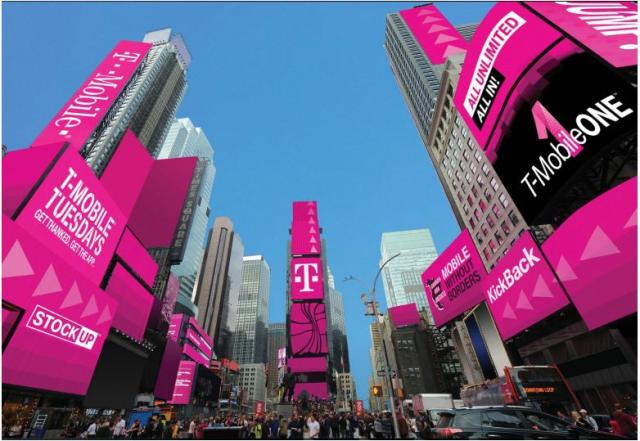T-Mobile US and Sprint Corporation announced their network related wish list as part of the $26 billion deal.
T-Mobile will be headquartered in Bellevue, Washington, with a second headquarters in Overland Park, Kansas City.
“This combination will create a fierce competitor with the network scale to deliver more for consumers and businesses in the form of lower prices, more innovation, and a second-to-none network experience – and do it all so much faster than either company could on its own,” said T-Mobile US CEO John Legere.
 Though the company announced new CEO and COO for the new company, it did not spell out who would run the network business. Both T-Mobile and Sprint have their independent network teams and CTOs.
Though the company announced new CEO and COO for the new company, it did not spell out who would run the network business. Both T-Mobile and Sprint have their independent network teams and CTOs.
5G network
Sprint’s 2.5 GHz spectrum, T-Mobile’s 600 MHz spectrum, and other assets, will create more capacity to mobile network. The combined company’s network is expected to deliver 15x faster speeds on average nationwide by 2024 compared to T-Mobile’s network today. Many customers will experience up to 100x faster speeds than early 4G.
AT&T and Verizon respectively own 34 percent and 172 percent more spectrum than the combined company. AT&T and Verizon cannot rapidly build 5G and their 5G networks will only be available sporadically in a handful of very limited areas.
To build nationwide 5G, they either have to kick current customers off LTE, which would take years, or use a type of spectrum (millimeter wave) that can only carry a signal 2,000 feet from a cell site – versus multiple miles for other spectrum – making it nearly impossible for either of them to create a truly nationwide 5G network.
The new T-Mobile will have lower costs, more economies of scale, and more network capacity. The company did not promise that it will offer the low cost service to America’s wireless subscribers.
John Legere indicates that the company is going to convince FCC about the presence of several telecom and cable operators in the space vying for the next subscriber. The US is not the four-operator market at present. Hence FCC and other authorities should give permission for the acquisition.
AT&T is now the largest TV provider in the country. Comcast added more wireless phone customers last year than AT&T and Verizon combined. Charter is launching wireless this year.
More than 1 in 10 Americans (12 percent) use wireless as their only Internet or broadband connection, freeing from the grip of the traditional in-home broadband providers.
“This isn’t a case of going from 4 to 3 wireless companies – there are now at least 7 or 8 big competitors in this converging market. Once regulators see the benefits, they’ll agree this is the right move at the right time for consumers and the country,” John Legere said.
Verizon and AT&T dominate business and government customers with 4x more customers than Sprint and T-Mobile added together. The new company will bring real competition for business and government customers.
Job offer is the most important pitch from T-Mobile for the FCC approval. T-Mobile said more than 200,000 people will work on behalf of the combined company in the U.S. at the start.
The New T-Mobile plans to invest up to $40 billion in its new network and business in the first three years alone. This is 46 percent more than T-Mobile and Sprint spent combined in the past three years.
FCC authorities know that T-Mobile’s investment of $40 billion will be much less than what AT&T or Verizon would like to invest in two years.
This combination will force AT&T, Charter, Comcast and Verizon to make investments of their own to compete.
5G is expected to create 3 million new U.S. jobs and $500 billion in economic growth by 2024, according to a report from CTIA.





